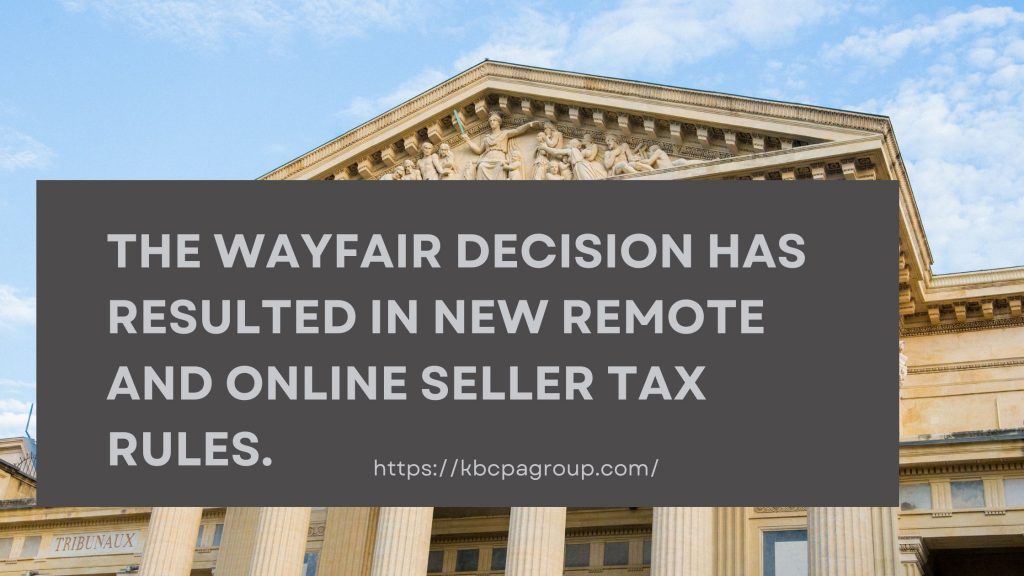The Supreme Court’s decision in the Wayfair case has prompted several states to enact new remote seller laws.
On June 21, 2018, the United States Supreme Court ruled in South Dakota v. Wayfair Inc. that states can require online sellers to collect state sales tax on their sales. This overturns the Court’s 1992 decision in Quill Corporation v. North Dakota, which prohibited states from requiring a business to collect sales tax unless it had a physical presence in the state.
For many years, states have argued that they are losing a great deal of revenue by not being able to collect sales tax on Internet purchases made by customers located in their state. Until recently, the burden was on the customer rather than the seller to pay use tax—a type of tax generally levied in addition to a state’s sales tax. Customers often did not pay this additional tax.
A number of states have passed laws allowing them to require out-of-state sellers to collect sales tax. To determine whether you are required by law to collect sales tax for any given state, you should contact an attorney or visit the state’s Department of Revenue website.
Many states have enacted new laws that require remote sellers to collect and pay sales tax. These laws generally apply when a seller has either a minimum number of separate sales to customers in the state or a minimum dollar amount of sales to customers in the state, at which point the seller must register with the state’s taxing authority.
The obligation to collect sales tax on remote sales varies from state to state. Under some laws, sellers would be required to collect sales tax retroactively. For a chart outlining the status of each state’s remote seller sales tax laws, see Sales Taxes in State Tax Guide .
However, the status of these new state laws is uncertain due to a proposed federal remote seller sales tax law that has been introduced but has not been passed. If it were to pass, it could invalidate or require changes to the new laws in many states.
Despite the Supreme Court’s decision in the Wayfair case, states are expected to collect more sales tax revenue due to the court’s decision. Remote sellers will need to stay informed regarding which states and localities require them to pay sales tax and at what rate by using sales tax software.
CPA in Coral Springs & Parkland, FL
KB CPA Services P.A.
If you are looking for a full service CPA firm or an Accountant in Coral Springs, Parkland, South Florida, you have come to the right place.
CPA Tax Services Near you!!
Contact info
- 954-510-9188
Mon-Fri: 9:00 – 18:00 EST
- info@kbcpagroup.com
24/7 customer support
Service Areas
Coral Springs
Boca Raton
Tamarac
Deerfield Beac
Margate
Coconut Creek
Fort Lauderdale
Our Blog
- © KB CPA Group - 2021. All rights reserved.
- Terms & Conditions
- Refund & Privacy Policy

